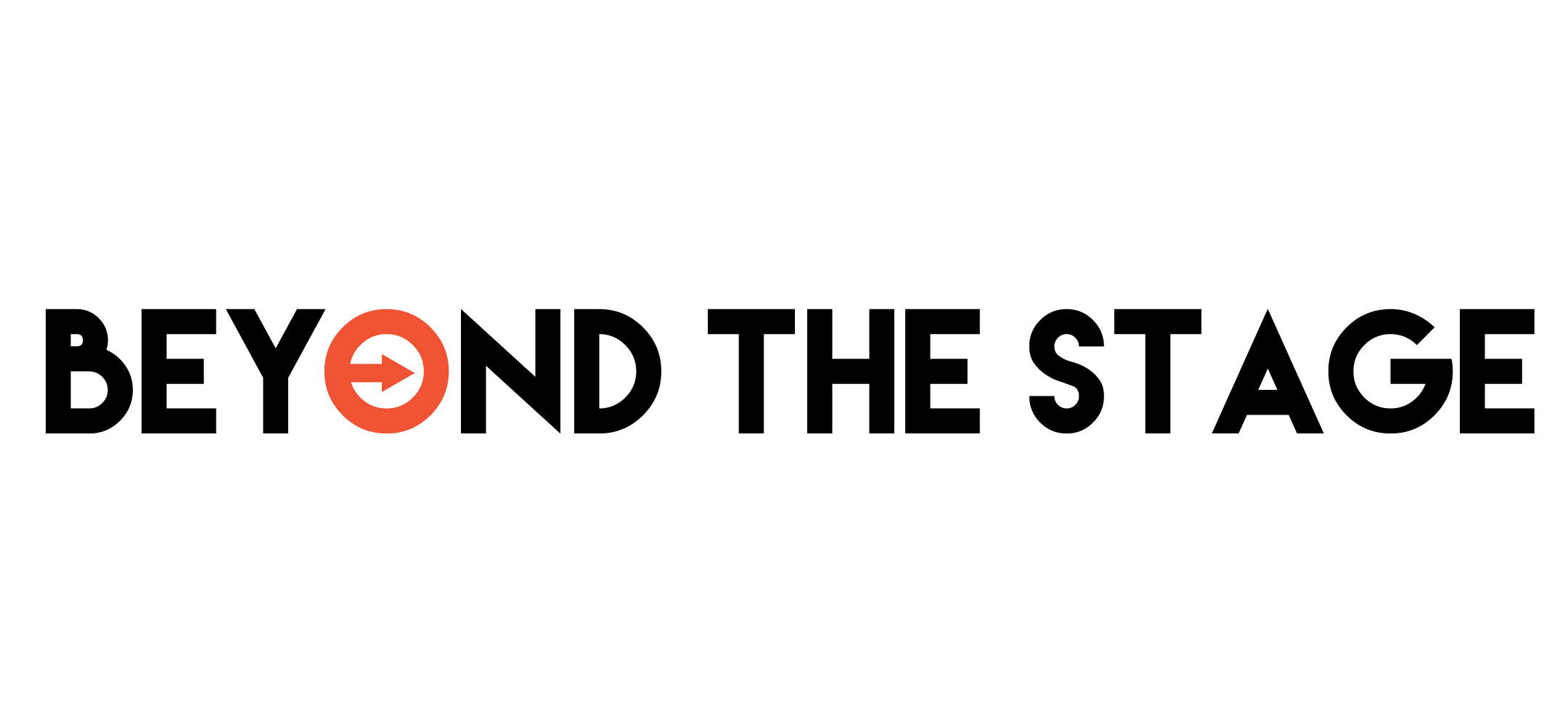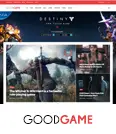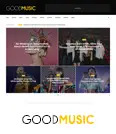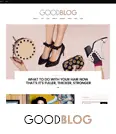Rising singer-songwriter Rhys Lewis is known for his ability to share honest and vulnerable stories with his listeners. He’s spent the fall traveling the world with Julia Michaels, and winning over fans along the way as he gears up to release his debut album next year. We sat down with Lewis ahead of his set in New York, NY and discussed his musical inspirations and the recording process for his new album.
BTS: Introduce yourself!
RHYS LEWIS: My name is Rhys Lewis, I’m a 28 year old singer-songwriter from Oxfordshire in the UK, but currently living in London and just finished recording my debut record.
BTS: Describe your sound for someone who may not have heard of you before.
RL: I find this question to be really difficult because you don’t really listen to your own music the way you listen to other people’s music. I think it’s quite soulful and raw, which I guess a lot of people probably say. It’s quite lyrically and emotionally driven.
BTS: Who are your musical inspirations?
RL: Growing up, I was a massive fan of the Arctic Monkeys, Alex Turner just spoke to me as a teenager and is who made me express interest in songwriting in the first place I supposed. Then I started to explore the classic American songwriters, so Carole King, Bill Withers have been huge inspirations on my music in the way that they kind of speak to you really personally and conversationally through their lyrics. Sometimes they can sum up a really big idea in a really simple way through the dichotomy of their lyrics. Then bands like Led Zeppelin, Jimi Hendrix, were huge inspirations to me when I was learning how to play guitar, my music doesn’t actually sound anything like them. They just inspired me to keep pushing myself to learn new riffs and chord progressions and things like that.
BTS: When did you start playing guitar?
RL: I was about 10 years old. My dad can play a few chords. He had an acoustic guitar that was collecting dust in our living room and he never really played it. One day he was messing around with it and I asked him if he could teach me, so he taught me the blues and after that I was obsessed.
BTS: So how old were you when you wrote your first song?
RL: I was 15 or 16 I reckon. It was for a local battle of the bands and you had to play two covers and an original. My friends and I wrote a song called, I don’t even remember, it was probably called something really horrible like “You’re Beautiful” or something like that. I do want to say that we won the battle of the bands though.
BTS: Well the song couldn’t of been that bad then if you won.
RL: True! That was also the first time I ever sang on stage. It was horrible, but it was all in preparation for where I am now.
BTS: What’s your studio and songwriting process like? Can you give us some insight into how you write?
RL: When it comes to writing, I have notes in my phone that are filled with lyrics and things like that I feel like I want to talk about. I used to start from a very lyrical place, and I do start there from time to time. Now, it usually starts with improvising and trying to find a piece of a melody and try to roughly shape that and then build everything else around it. If there’s something in my phone that fits into the atmosphere of the song, then I’ll go with that, if not I’ll just continue to write and improvise and find something that fits the song. When it comes to lyrics, I feel like it’s the power of not thinking about them that allows you to write good lines. When you’re consciously trying to think of a good idea, it’s hard.
BTS: That makes sense. You don’t want anything to sound too forced.
RL: Yeah. Sometimes you don’t know what you’re saying, you just kind of mess around until you find the right words or lines that go together. When it comes to the production, it’s a bit of a slower process. I always want it to feel like the song comes first and then the production is not too heavy. I’m pretty economical with it because I don’t want people to notice there’s production sometimes. You want to take the audience on a journey with your songs, and I don’t want the production to be what they’re listening to. When people listen to your music, they’re listening to it for the song, not everything that comes after it.
BTS: So what was the process like for recording your album?
RL: The album has really been written over a few years. You sort of collect songs over the years, and it’s taken kind of a long time for me to get to actually record the album in full. There are a few songs on the album that I wrote back in 2016 and some that I wrote at the beginning of the year this year. Interestingly, some of the songs that I recorded this year that I had the opportunity to play live beforehand were almost harder to record because you already have a version that you play live. But on the other hand, they’ve been tried and tested so you kind of already have a sense if the audience likes it or not. The ones I’ve haven’t played live, I’ve only experienced while recording the album so I don’t know how they’re going to translate live. We actually recorded this album on a tape machine, which has so many limitations. But it was good to have those limitations because it forces you to conceptualize everything a little differently. Plus, you kind of get to go through a journey for every song rather than just cutting a few vocals and then editing it quickly on the computer. When it’s on tape, you can’t edit it. You can’t tweak it or change it, you just have to play it again. You can’t drop in sections either so you just have to play the whole thing and I think it forces you to be more musical in a sense and it also allows more human moments to occur. It’s also a very expensive way of recording, one roll of tape is about $260 quid (roughly $336 USD) and I don’t have a big production budget. So I only had 3 or 4 rolls of tape to record the album on. Another interesting limitation to tape is that you only have 24 channels you can use, so 8 of those could just be microphones on a drum kit and 4 of those could just be on a piano, so already you’ve blocked out half of your channels. So you have to be really economical about how you’re recording and it forces you to think about what’s really necessary for the song to live and breathe and grow.
BTS: Did it get frustrating at any point?
RL: OH absolutely. There are piano parts that we recorded on songs 10+ times because some days you go in and the temperature of the room can change the way the piano sounds and feels. Then you come back the next day and try putting it at another place in the room, and then you just keep going back and forth. I think what’s been a nice realization is having the ability to give yourself time and space to come back and revisit songs with fresh ears. You’ll come back the next day and hear the song totally different and you’ll be able to tell if it’s right or wrong. It is frustrating trying to get things to sound good, so there’s a lot of trial and error in the process. But it’s good to be able to come back with fresh ears since it gives you more perspective.
BTS: How long did it take you to actually record the album?
RL: We had a bit of a time schedule because we were going on tour in Europe at the end of April. So we had February and March to record the album, which sounds like a lot but again you need to give yourself time away from the songs to gain that perspective. I reckon it took about two months to record it and then the mixing came after that.
BTS: You recently released your single, “Be Your Man,” what was that experience like?
RL: It’s a newer single but it’s quite an old song actually. I wrote that song in 2017. It was about one of my first serious relationships and I kind of felt like I was continuously being compared to her ex. I felt like she didn’t want a new relationship, she just wanted what she had. But on the other hand, I felt like we were really compatible and I felt like we had something really special. But she hadn’t quite gotten over what she had with this previous guy and I just felt like I was living in his shadow and it wasn’t quite right. She didn’t want something new she wanted something familiar, so it was a pretty horrible feeling.
BTS: You’re currently on tour with Julia Michaels right now, tell us about how it’s been so far for you!
RL: It’s been incredible. It’s been one of the most enjoyable musical experiences to date because not only have we had the opportunity to get to know her and her team who are absolutely lovely, but we’ve gotten to experience Australia, Europe, and now America all in the span of two months. I’ve never done a tour as vast as this one, so it’s been a crazy experience. It’s amazing to be able to play to crowds that are so willing to give me their attention every night. Julia’s fans have been really receptive and really want to listen. I’ve been on support tours before that have been great, but this one feels like the fans are far more engaged in our set every night, which is such a privilege. Sometimes you can be there and everyone’s talking through your set and you don’t know if anyone is really actually listening. But every show on this tour has made us feel so appreciated, and it changes the way you play.
BTS: I’m sure that’s great though because then you don’t feel like you’re trying to win people over every night.
RL: Yes! And dynamically you can play the song how you want to play it and not the way your forced to play it because when people are just talking over you, you obviously want to play louder so people can hear you. But when people are engaged you can actually play the songs how you want to play them.
BTS: What’s next for you in 2020?
RL: Ooooh! The album is coming out next year. I’ll have another European tour at some point, and maybe even another American tour. Just touring and promoting the album really, all of which I’m so excited about.
Follow Rhys Lewis on Facebook, Twitter, and Instagram.
Stay up-to-date with all your favorite artists by following Beyond The Stage.
- PHOTOS: Lewis Capaldi – Berkeley, CA – 4/30/23 - May 2, 2023
- PHOTOS: Fletcher – Oakland, CA – 11/16/22 - November 17, 2022
- PHOTOS: Muna – San Francisco, CA – 10/23/22 - October 24, 2022








